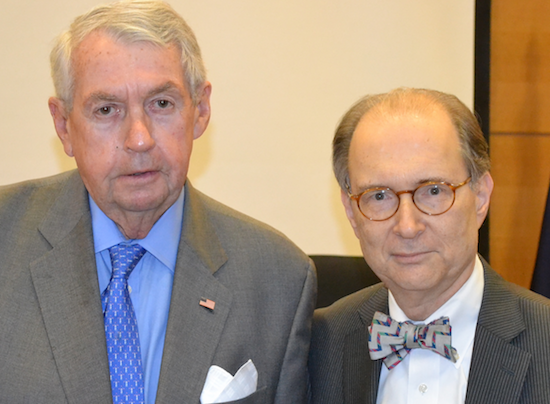Brooklyn is final stop on the drug court road trip

The National Association of Drug Court Professionals has been touring the country to celebrate National Drug Court Month. Its final stop was at Brooklyn’s Drug Treatment Court on Friday.
The trip, which is called All Rise America!, is meant to highlight recovery stories from drug court graduates nationwide. Brooklyn’s Treatment Court was chosen as its final stop because it is seen as a pioneer among drug courts in helping to change the lives of people who otherwise would have gotten caught up in the criminal justice system.
“The Brooklyn Treatment Court was established in 1996,” Chris Deutsch, NADCP’s director of communications, said. “It wasn’t the first drug court in the county, but it was certainly a pioneer, and we wanted to end this trip here to recognize that.”
